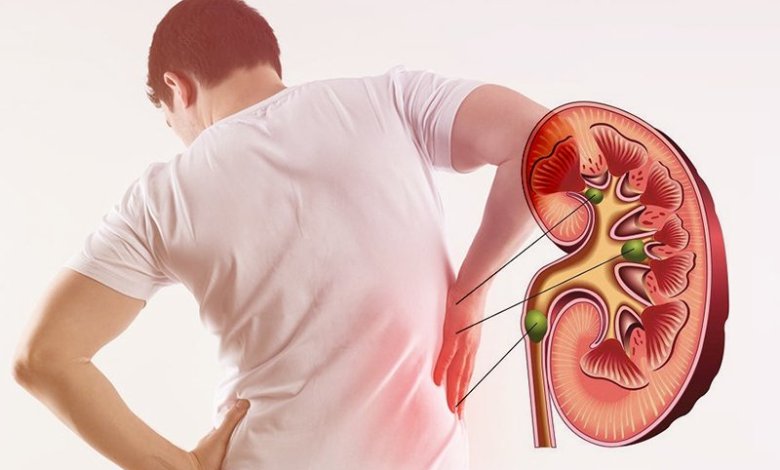The kidneys are remarkable organs that play a crucial role in maintaining our overall health. They are responsible for filtering waste and excess fluids from the bloodstream, regulating electrolyte balance, and producing essential hormones. However, like any other part of the body, kidneys can face various health issues, including swelling or inflammation.
Swollen kidneys, if left untreated, can lead to serious complications. In this article, we will explore the signs of swollen kidneys and the underlying causes that should not be ignored.
Understanding Kidney Swelling
Swollen kidneys, also known as kidney swelling or nephrotic syndrome, occur when there is an abnormal buildup of fluid in the kidney tissues. This condition can affect one or both kidneys and may result from various underlying causes. Recognizing the signs of swollen kidneys is crucial, as early detection and treatment can prevent further kidney damage.
Signs and Symptoms
1. Edema: One of the most common signs of swollen kidneys is edema, which is the abnormal accumulation of fluid in the body. Patients may notice swelling in the ankles, feet, legs, or even around the eyes.
2. Proteinuria: Swollen kidneys often lead to increased protein levels in the urine, a condition known as proteinuria. This can cause foamy or frothy urine and is often accompanied by a decrease in the urine output.
3. Hypertension: Elevated blood pressure (hypertension) can be both a cause and a consequence of kidney swelling. It’s essential to monitor blood pressure regularly, as uncontrolled hypertension can further damage the kidneys.
4. Fatigue: Individuals with swollen kidneys may experience persistent fatigue and weakness due to the impaired filtration function of the kidneys, leading to a buildup of toxins in the body.
5. Loss of Appetite and Weight: Loss of appetite and unintentional weight loss are common symptoms of kidney swelling. This can be attributed to a variety of factors, including altered metabolism and nausea.
6. Pain: Some patients may experience pain in the back or side, where the kidneys are located. This discomfort may vary in intensity and can be a sign of kidney inflammation.
7. Frequent Urination: Swollen kidneys can disrupt the normal urinary pattern, causing increased frequency of urination, especially at night.
Causes of Swollen Kidneys
1. Infections: Kidney infections, such as pyelonephritis, can lead to kidney swelling. These infections are often accompanied by symptoms like fever, chills, and pain in the lower back or side.
2. Diabetes: Uncontrolled diabetes can damage the small blood vessels in the kidneys, leading to kidney swelling. Managing blood sugar levels is crucial in preventing this complication.
3. Hypertension: Chronic high blood pressure can place excessive strain on the kidneys, leading to their inflammation and eventual swelling.
4. Autoimmune Disorders: Conditions like lupus and IgA nephropathy can cause the immune system to attack the kidneys, leading to inflammation and swelling.
5. Medications: Some medications, especially nonsteroidal anti-inflammatory drugs (NSAIDs), can have adverse effects on the kidneys and cause swelling when used excessively or for prolonged periods.
6. Genetic Factors: Inherited conditions, such as polycystic kidney disease, can lead to cysts forming in the kidneys, causing them to swell over time.
7. Obstruction: Blockages in the urinary tract, such as kidney stones or tumors, can disrupt normal kidney function and lead to swelling.
8. Toxins: Exposure to certain toxins, chemicals, or heavy metals can harm the kidneys and result in inflammation and swelling.
The Importance of Timely Diagnosis and Treatment
Early diagnosis of swollen kidneys is vital to prevent further damage to these vital organs. If you or someone you know is experiencing any of the aforementioned signs and symptoms, it is crucial to seek medical attention promptly. A healthcare provider will conduct a thorough evaluation, which may include blood tests, urine analysis, and imaging studies, to determine the cause and extent of kidney swelling.
Treatment options for swollen kidneys depend on the underlying cause. In many cases, lifestyle modifications, such as dietary changes to reduce sodium intake and blood pressure management, are essential components of treatment. Medications may also be prescribed to control underlying conditions like hypertension or diabetes.
In more severe cases, where kidney function is significantly impaired, dialysis or kidney transplant may be necessary to sustain life. These options emphasize the critical importance of early detection and proactive management of kidney swelling.
Prevention and Lifestyle Changes
Preventing kidney swelling involves maintaining overall kidney health and addressing underlying risk factors. Here are some important steps you can take:
1. Stay Hydrated: Adequate hydration is essential to support kidney function. Drinking plenty of water helps flush out toxins and waste products.
2. Manage Chronic Conditions: If you have conditions like diabetes or hypertension, work closely with your healthcare provider to keep them under control through medication and lifestyle changes.
3. Limit Sodium Intake: Reducing your sodium intake can help control blood pressure and reduce strain on the kidneys.
4. Avoid Excessive Use of Medications: Only take medications as prescribed by a healthcare professional, and avoid over-the-counter pain relievers if they are not necessary.
5. Maintain a Healthy Diet: A diet rich in fruits, vegetables, whole grains, and lean proteins supports kidney health. Limiting the consumption of processed foods and excess protein may also be beneficial……See More
Reasons Why Some Women Die During Pregnancy And Childbirth And How To Prevent It

